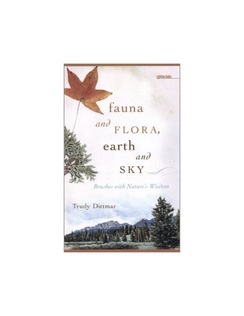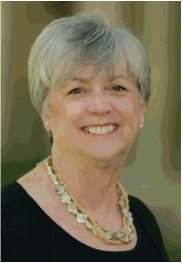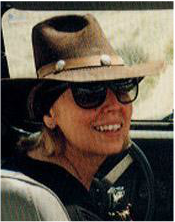|
9/18/2016 0 Comments September 18th, 2016 Trudy Dittmar explains in "Wolf Show, Truman, Ersatz Moon," her essay from Fauna and Flora, Earth and Sky: Brushes with Nature’s Wisdom, a collection of ten essays from University of Iowa Press. Nature writing may not be everyone’s cup of tea, but add some cinema and cultural-political intrigue and you’ve got some evocative reading. Such is the case with Dittmar’s book, a title from the Sightline nonfiction series edited by Patricia Hampl and Carl H. Klaus. Dittmar uses nature to introduce us to what Dittmar’s thinking, but she swirls in a sort of existential take on a movie to discuss a large, far-reaching issue of today’s society: the uncanny valley. She’s not talking about artificial intelligence or robots or the stuff of sci-fi. She’s talking about how we can hardly tell the difference between reality and what’s on the screens before our zombified faces. The essay weaves two stories about a public event of watching wolves in their “natural” habitat and The Truman Show, a ‘90s movie starring Jim Carey.
0 Comments
 What should you expect of working with a book editor? How does it work? Gretchen Hirsch, chief book surgeon at Midwest Book Doctors, offers some advice. 1) What does a book editor do? It's important for people to know that the editor's job is not to ruin their style or wreck their book. It is to help shape the book into the best it can be, in constant conversation with the author. The editor does not hack away at leisure. We speak with the author over and over in person, by email, or by phone to clear up issues and misunderstandings, to offer suggestions, etc. The difference between a house editor and an independent is that a house editor has power. An independent editor can only persuade. The author is the final arbiter, for better or for worse. And if the author doesn't want to hear suggestions, he or she should not seek editorial input. Levels of editing include developmental, line, copy, and proofreading. They're all different, and cost is based on complexity of the editorial process. 2) How should writers prepare for a book editor? Have your book in the best possible shape before you approach an editor. The less the editor has to do the more money you save. Be prepared to part with at least a portion of your ms. (I require the entire thing) so the editor can assess the amount of time/work the project will take and set a fair price. Study the conventions of mss. preparation. No double spaces between sentences. I prefer mss. to be in ms. form, but if you are publishing only online, perhaps the block form with a space between paragraphs is OK. Most Kindle books are formatted as mss., though, not business letters. 3) What three things should writers expect from an editor? Expect frankness. A letter of agreement. To pay some upfront money to get started-- but run from anyone who demands the entire fee up front. Expect references and organizations to which the editor belongs. Expect a free sample edit. I provide one of between 3 and 5 pages. Expecting more is unrealistic. Find out if there's a reading fee. Learn more about book editors or have Gretchen edit your manuscript. Contact her at [email protected] For another series of tips on how to submit your nonfiction, check out these tips of what to do and what to avoid.
Discover places to submit your nonfiction in post one, post two, and post three. Wouldn't you like to be in these pages? Along these fine writers?
Travelers' Tales Hayden's Ferry Review Southeast Review Sonora Review Concis Lunch Ticket Hotel Amerika New Ohio Review Under the Gum Tree Check here and here for more places to submit your nonfiction. |
What my clients are sayingYou have a good grasp of what is needed...Thank you so much for your diligence and dedication to getting this turned around so quickly and comprehensively." |
Check me out on LinkedIn or email me. |

 RSS Feed
RSS Feed